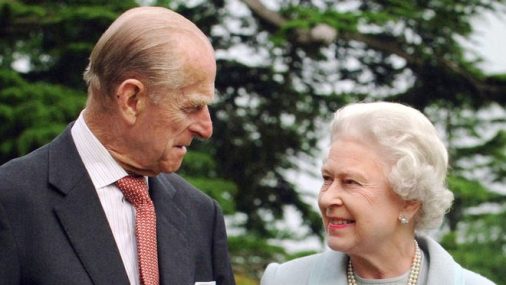The allocation of Johnson & Johnson vaccine doses from the U.S. government is expected to fall by 85% next week, reported the Centers for Disease Control and Prevention.
Only about 785,000 Johnson & Johnson vaccine doses are slated to roll out to states and other jurisdictions next week, compared to five million doses this week.
The decline in supply comes after the company had to discard 15 million doses of its coronavirus vaccine last month because the batch did not meet quality standards.
Pfizer-BioNTech and Moderna vaccine dose distribution will remain steady, with 4.7 million first doses of Pfizer and 3.5 million first doses of Moderna allocated to states.
The decline in J&J doses has forced at least one state’s officials to revamp some distribution plans. Connecticut recently learned that its expected shipment of 20,000 J&J doses next week will drop to 6,000 and then down to 2,000 the following week, interrupting plans to target vaccinations for college students.
Meanwhile, more than a third of Americans have gotten at least one shot, and more than a quarter of American adults are now fully vaccinated, data released Thursday through the CDC shows. Just under one-fifth of all Americans have been fully vaccinated.
A USA TODAY analysis shows 47 percent of people in Palau, and 45% of the people in New Hampshire, are at least partially vaccinated. On the other side are about 14% of Americans in Micronesia, with Mississippi as the lowest state with less than 27% partially vaccinated.
Also in the news:
►Racism is a “serious public health threat,” CDC director Rochelle Walensky declared Thursday. This comes as communities of color face disproportionate COVID-19 case counts and death, shining light on “inequities that have existed for generations,” the agency said in a statement.
►A woman in Kyoto, Japan, who suffered severe lung damage after contracting the virus became the first recovered COVID-19 patient in the world to receive a lung transplant from living donors. She was donated lung tissue from her husband and son.
►Vermont is preparing to welcome the return of Amtrak passenger rail service and inter-city bus services to the state, the Agency of Transportation announced Thursday.
►The French Open tennis tournament will be delayed by one week in May because of the coronavirus pandemic, organizers said Thursday.
►The University of Notre Dame announced Thursday that it would become the latest college to require all students to be fully vaccinated against COVID-19 for the fall semester.
►Philippine authorities are investigating the death of a 28-year-old man forced to perform nearly 300 squat exercises after officials say he broke local COVID-19 curfew rules last week.
►The state of Florida has filed a lawsuit against the federal government to demand cruise ships start sailing.
📈 Today’s numbers: The U.S. has more than 31 million confirmed coronavirus cases and 560,000 deaths, according to Johns Hopkins University data. The global totals: More than 134 million cases and more than 2.9 million deaths. More than 229 million vaccine doses have been distributed in the U.S. and 174 million have been administered, according to the CDC.
📘 What we’re reading: California Latinos of all age groups are “multiple” times more likely to die from COVID-19 than white people, a UCLA study finds. Read the full story.
USA TODAY is tracking COVID-19 news. Keep refreshing this page for the latest updates. Want more? Sign up for our Coronavirus Watch newsletter for updates to your inbox and join our Facebook group.
North Carolina sites halt Johnson & Johnson shots after adverse reactions
North Carolina health officials said on Thursday that they stopped administering Johnson & Johnson doses at a mass vaccination site in Raleigh and at clinics in Hillsborough and Chapel Hill after at least 26 people experienced adverse reactions, including fainting.
Four people were taken to hospitals for further examination, and state and federal health officials are reviewing the matter. In Colorado on Wednesday, 11 people saw adverse reactions after receiving a J&J shot. Two of those individuals were taken to a hospital.
CDC spokeswoman Kristen Nordlund said it is aware of adverse reactions in some people who received the vaccine shots in Iowa, Colorado, Georgia and North Carolina. Those reactions include dizziness, light headedness, feeling faint and rapid breathing.
“COVID-19 vaccines are safe and effective,” she said. “Many people don’t have any side effects after COVID-19 vaccines, but some people will have pain or swelling at the injection site or fever, chills, or a headache. These typically don’t last long and are signs that your body is building protection.”
Couple in their 90s reunite after more than a year to celebrate their 72nd anniversary
Virginia Byrne, 95, spent more than a year apart from her husband Jack, 94, due to coronavirus restrictions as he lives in a memory care facility.
The couple reunited March 19 at the assisted living facility where Jack resides in St. Louis, Missouri to celebrate their 72nd anniversary.
“The lights went on again in my life, because I was able to be so close to my husband for the first time in more than a year,” Virginia Byrne told ABC. “It was a wonderful moment. I could hardly let go.”
Variant cases more than triple in some states
The CDC reported nearly 3,400 coronavirus variant cases late Thursday, showing some states had more than tripled their tallies of dangerous mutated viruses just in the last week.
The United States now has 20,412 known variant cases and seven states, including Georgia, Colorado and California, have reported at least 1,000 cases. A week ago, only two states had reached that mark. Seven states have now reported at least 1,000 cases; a week ago, only two had reached that mark.
Meanwhile, Michigan and Minnesota each reported more than 600 variant cases on Thursday, with Minnesota nearly tripling its known variant case count this week alone, and Michigan up 83% in the week.
– Mike Stucka
1 in 3 COVID-19 survivors diagnosed with brain or mental health disorder study finds
A massive study conducted during the pandemic estimates 1 in 3 COVID-19 survivors were diagnosed with a neurological or psychiatric condition within six months of infection.
The study, published Tuesday in the peer-reviewed journal The Lancet Psychiatry, used more than 230,000 electronic health records of COVID-19 patients mostly in the U.S. looking at 14 different brain and mental health disorders.
Thirty-four percent of survivors were diagnosed with at least one of these conditions, with 13% of these people being their first recorded neurological or psychiatric diagnosis. Mental health diagnoses were most common among patients, with 17% diagnosed with anxiety and 14% diagnosed with a mood disorder.
Although neurological diagnoses were more uncommon, they were more prevalent in patients who had been seriously ill during a COVID-19 infection. For example, 7% of patients who were admitted to intensive care had a stroke and 2% were diagnosed with dementia.
– Adrianna Rodriguez
If UK is any sign, vaccines may blunt impact of spring surge in US
Wednesday’s announcement by the CDC that the highly transmissible coronavirus variant first identified in Britain is now the dominant strain in the U.S. carries ominous implications, but recent developments in the United Kingdom offer a ray of hope.
Researchers at Imperial College London found that COVID-19 infections dropped about 60% in March as national lockdown measures slowed the spread of the virus. People 65 and older were least likely to be infected as they benefited most from the vaccination program, which initially focused on older people.
The study also found that the relationship between infections and deaths is diverging, “suggesting that infections may have resulted in fewer hospitalizations and deaths since the start of widespread vaccination.”
In the U.S., even though infections have increased by 14% over the last two weeks, the rate of hospitalizations is only up 5% and reported deaths – which typically lag by about four weeks – are down 31%, according to the New York Times tracker.
The U.S. trails only Britain among large countries in the number of vaccine doses administered per 100 people, 55-51. By comparison, France is at a little under 19. The U.S. has also given at least one vaccine shot to 75% of its population age 65 and older, which is most vulnerable to the virus.
That suggests the spring surge so many health experts are dreading won’t be as brutal as the one in the winter, which was capped by a record 95,000-plus deaths in January.
“It’s almost a race between getting people vaccinated and this surge that seems to want to increase,” presidential adviser Dr. Anthony Fauci told CNN on Wednesday.
Contributing: The Associated Press

